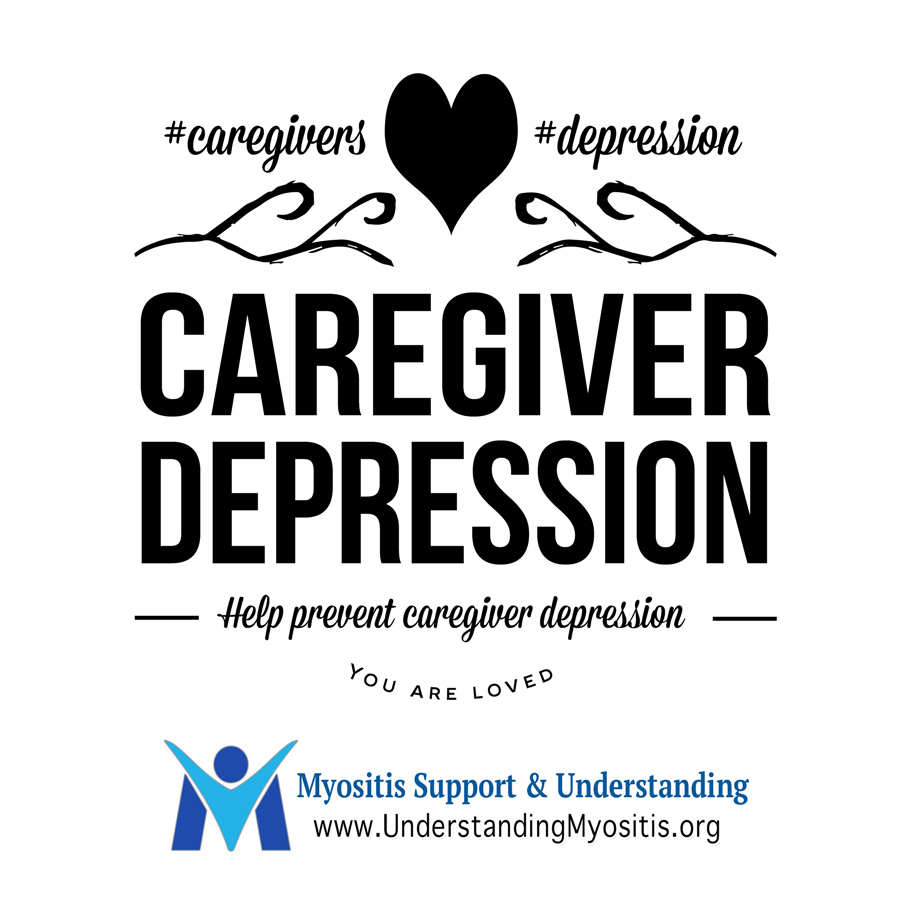According to a study by Yale University, one-third of caregivers are clinically depressed. You, as a caregiver, are at high risk of depression because you sacrifice your needs to help others, in addition to the stress and life changes you experience as a result.
For myositis and chronic illness caregivers, your lives have changed. Just as the person you are caring for, you, too, must find a new way of living – a “new normal.”
Caregiving is hard and can lead to feelings of stress, guilt, sadness, isolation and depression. Depression is nothing to be ashamed of and it is treatable. There are many resources available for treating depression such as traditional counseling including a psychologist, psychiatrist, therapist and social worker, not to mention online and phone resources you can utilize. In addition, anti-depressant medications may also benefit your depression. Do not feel weak or cowardly for needing these medications; you are only taking care of yourself and that is important for you and your loved one.
When you acknowledge your situation and emotions, you are better able to grieve the loss of your old life and begin to plan, organize and change how you will live in the present.
How to help avoid caregiver depression:
- Reach out for help. This could be asking others to help with caregiving tasks, seeking respite services or finding support groups. Some of your friends and family may be waiting for you to ask.
- Focus on other relationships in your life. Remember those in your life that care about you and show them some love. This may help you feel better.
- Write down or say your feelings out loud. Sometimes just acknowledging your emotions can be helpful. Journaling has been proven beneficial whether you are suffering from depression or another illness.
- Stay positive. This advice may be given so often we no longer pay attention to it, however if you focus on what you are doing as a caregiver, giving of yourself so fully and completely to help your loved one, it may help you feel better about yourself.
- Realize and accept that what you do as a caregiver is making a positive difference in the life of your loved one. Over 70% of caregivers reported feeling good about themselves as a caregiver when they accept they are making a positive impact in someone’s life.
Remember you are not just a caregiver! You are everything life has to offer and “caregiver” is just one of many roles in your life.
If you are having suicidal thoughts, please call the National Suicide Prevention line at 1-800-273-TALK (8255) or visit your local hospital Emergency Department. You are important, you are loved and you are not alone.
How do you try and prevent caregiver stress/burnout? And,what are ways you help yourself as a caregiver with depression?
Tags: caregivers depression myositis caregivers









